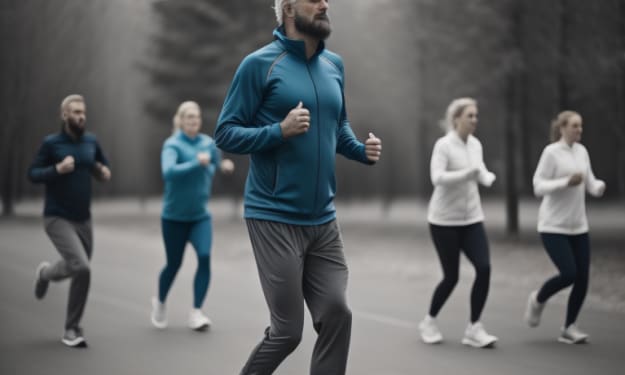The Healing Power of Nature
How Ecotherapy Benefits Your Mental and Physical Well-being

In today's fast-paced and technology-driven world, many of us find solace in the healing power of nature. The practice of ecotherapy, also known as nature therapy or green therapy, recognizes the profound impact that nature has on our mental and physical well-being. By immersing ourselves in natural environments and engaging in outdoor activities, we can experience a wide range of benefits that contribute to our overall health and happiness. In this article, we will explore the concept of ecotherapy, its benefits, and how you can incorporate it into your life for improved well-being.
Connecting with Nature: A Source of Peace and Serenity
Spending time in nature allows us to disconnect from the hustle and bustle of everyday life and find tranquility. Whether it's taking a leisurely walk in the park, hiking in the mountains, or simply sitting by a peaceful lake, immersing ourselves in natural settings can promote a sense of calmness and relaxation. Nature's soothing sights, sounds, and scents have a therapeutic effect on our nervous system, reducing stress levels and promoting a greater sense of inner peace.
Boosting Mental Health and Well-being
Numerous studies have shown that exposure to nature positively impacts our mental health. Spending time outdoors can alleviate symptoms of anxiety and depression, improve mood, and increase overall feelings of happiness and well-being. The sights and sounds of nature stimulate our senses and evoke positive emotions, providing a natural antidote to the daily stressors of life. Engaging in activities such as gardening, forest bathing, or simply sitting under a tree can have profound effects on our mental health.
Physical Health Benefits of Ecotherapy
Nature therapy not only benefits our mental well-being but also contributes to our physical health. Being in nature encourages physical activity, whether it's walking, hiking, cycling, or participating in outdoor sports. Regular physical activity improves cardiovascular health, strengthens muscles and bones, and helps to maintain a healthy weight. Additionally, exposure to natural sunlight boosts vitamin D production, which is essential for bone health and overall immune function.
Enhanced Cognitive Function and Creativity
Studies have shown that spending time in nature can improve cognitive function and enhance creativity. Nature's restorative qualities help to reduce mental fatigue and improve focus and attention. Taking breaks in natural environments during work or study sessions can revitalize the mind, leading to increased productivity and creativity. Nature's beauty and complexity also stimulate our imagination, opening the doors to new ideas and inspiration.
Environmental Stewardship and Connection
Engaging in ecotherapy fosters a deeper connection with the environment and promotes a sense of environmental stewardship. As we spend more time in nature, we develop a greater appreciation for its beauty and the delicate balance of ecosystems. With the surroundings makes it feel peace within. This heightened awareness often translates into a desire to protect and preserve the natural world, leading to more sustainable practices and a commitment to environmental conservation.
Conclusion:
Ecotherapy, or nature therapy, offers a multitude of benefits for our mental and physical well-being. By reconnecting with nature, we can find solace, peace, and healing in its presence. Whether through gentle walks in the park, adventurous hikes in the wilderness, or simply sitting quietly in a garden, the healing power of nature is accessible to all. So, embrace the outdoors, soak in the sights and sounds of the natural world, and experience the transformative effects of ecotherapy on your overall health and happiness.
References:
Bratman, G. N., Hamilton, J. P., & Daily, G. C. (2012). The impacts of nature experience on human cognitive function and mental health. Annals of the New York Academy of Sciences, 1249(1),





Comments
There are no comments for this story
Be the first to respond and start the conversation.